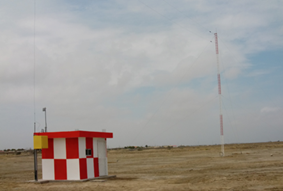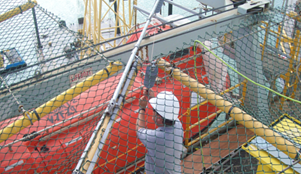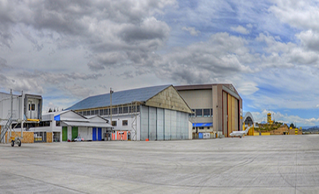Finding the Right NDB Frequency for Offshore Platforms
On an oilrig in the Gulf of Mexico, a client had installed a Southern Avionics SE125 NDB system to...

A small, regional airport in Ecuador couldn’t get site approval due to an erratic needle swing on pilots’ automatic direction finders (ADF) every time they used Southern Avionics’ SE125 NDB system to approach the airport over a mountain. No matter how much the frequency was changed, there was not a significant increase in performance.
Southern Avionics sent one of its engineers, a former pilot with experience navigating with NDBs, to Ecuador to solve the problem. By assembling test equipment with an ADF on top of a jeep, the engineer was able to pinpoint the source of the interference.
Several miles away in the mountains surrounding the site, there was a three-mile long, ungrounded and exposed AC power line. This line induced the energy from the signal and re-radiated it, acting like a second NDB transmitter in the mountains.
After discovering the problem, Southern Avionics worked with the client to meet with national authorities and the power companies to address the issue. Once the power lines were grounded at appropriate locations, pilots were able to use the NDB signal to locate the airport and the client was able to get their site approved.
If you are experiencing similiar issues, please contact techdept@southernavionics.com for assistance or fill out the form for help.

On an oilrig in the Gulf of Mexico, a client had installed a Southern Avionics SE125 NDB system to...

Navigational safety is a top priority for airports, regardless of size or location. Pilots need to...
Leave a Comment